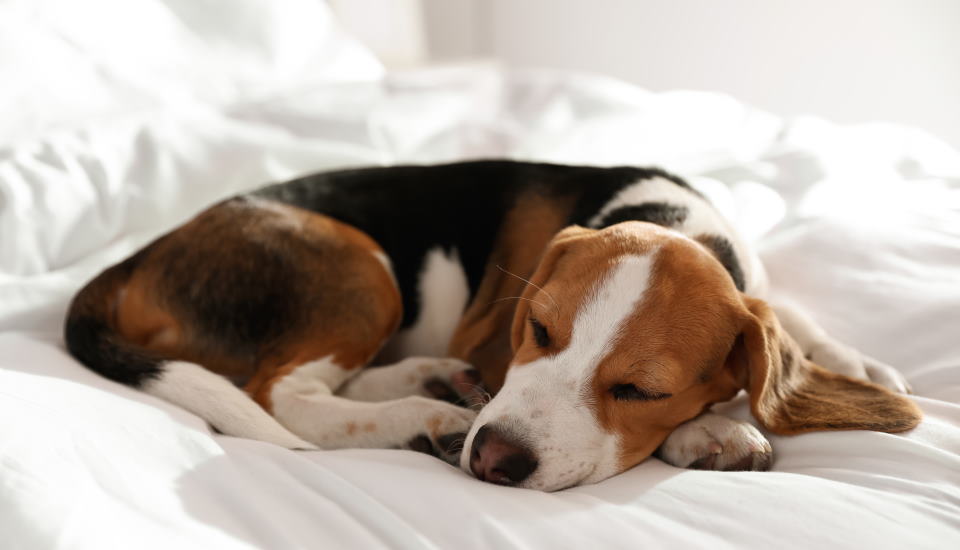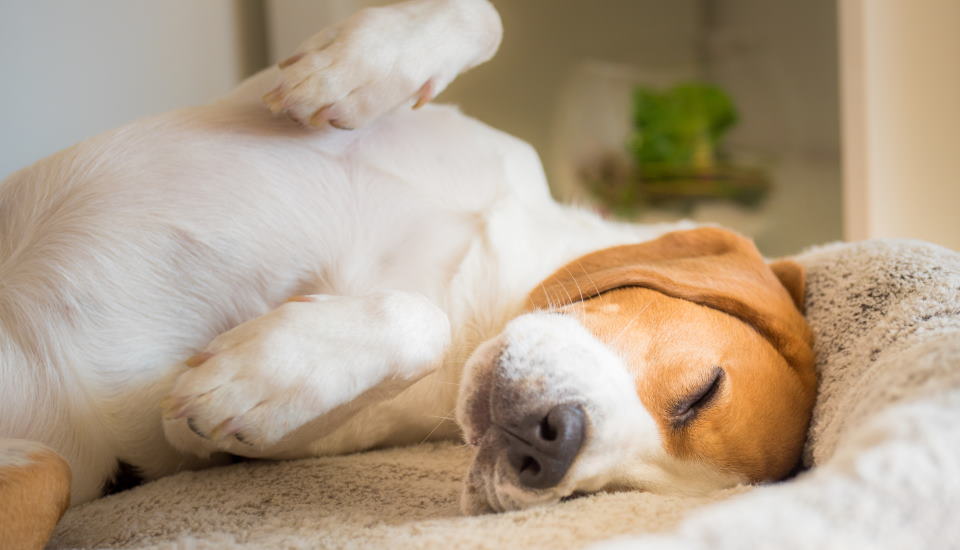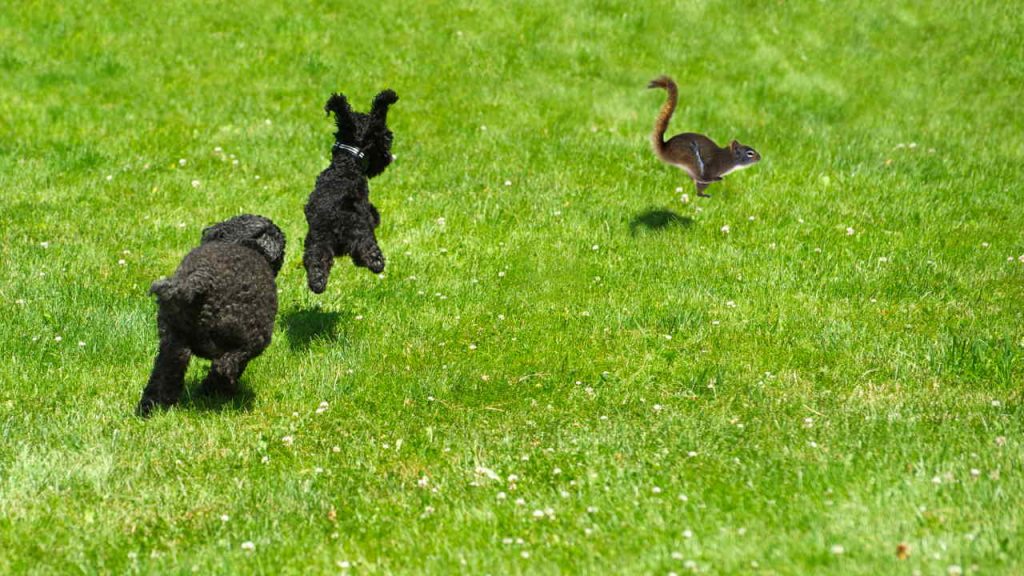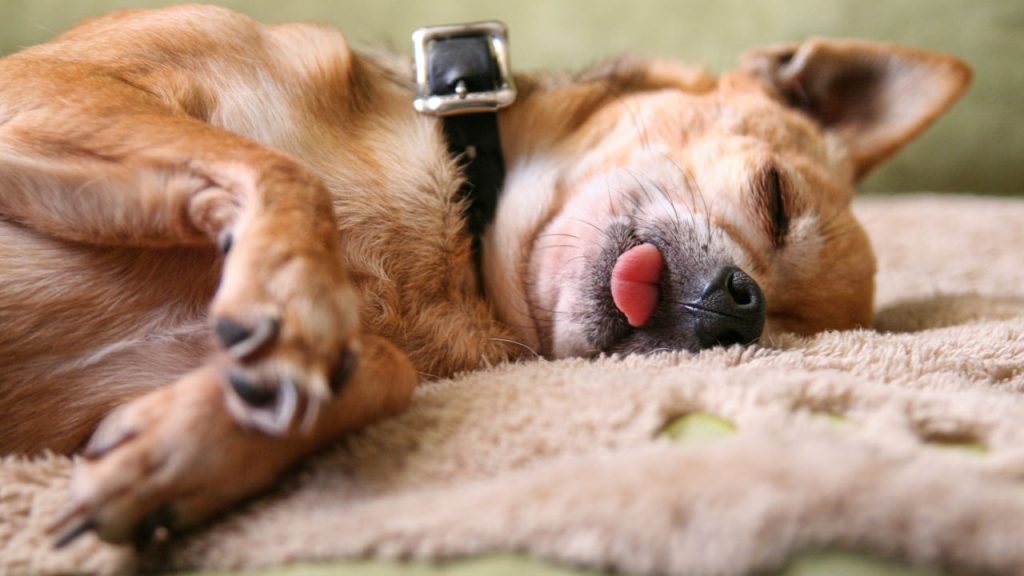As alarming as your puppy’s diarrhea at night, it shouldn’t necessitate a trip to the veterinarian immediately. Even in healthy pups, diarrhea occurs occasionally, and it is most common at night. However, it may be something more serious on some nights.
Due to parasites, stress-related alterations, or even changes in nutrition during weaning, younger puppies may be more prone to diarrhea at night. Cancer of the intestines in older dogs is more likely to cause chronic diarrhea at night.
When it comes to breeds, if you own a Greyhound, you’re probably already familiar with their loose stools – this is because Greyhounds develop diarrhea at night if you look at them cross-eyed. They’re quite sensitive to diet changes and stress colitis.
Golden Retrievers and Labrador Retrievers? They’re the most common canines encountered in the emergency room for “dietary indiscretion” that causes mild stomach discomfort and diarrhea at night. However, they enjoy chewing and may have a foreign body lodged in their digestive tract.
Histiocytic ulcerative colitis, often known as granulomatous colitis or “Boxer colitis,” affects young Boxers and causes severe persistent loose stools at night. Other breeds are prone to medical issues that result in diarrhea at night.
What Is Diarrhea?
Diarrhea at night is a condition in which the bowel movements are more often excessive and liquid. Bodily residues are passed through the anal canal through bowel movements, generally known as stools. Stools are the leftovers of your digestive system’s absorption of nutrients and fluids from your food and drink. Stools will be loose and watery if your body does not absorb enough fluids or if your digestive system generates too much. Solid feces weigh more and contain more water, salts, and minerals than loose stools.
There are some types to it. Acute diarrhea at night is a type of diarrhea that lasts for a shorter amount of time. Acute diarrhea is a more frequent condition that generally takes 1 to 2 nights but could last longer. On the other hand, chronic diarrhea at night is defined as diarrhea that lasts for a minimum of four nights. Chronic diarrhea symptoms might last for a long time or come and go.
What is Diarrhea in Dogs?

Canine diarrhea at night is a symptom of a health issue, not a sickness in and of itself. Undigested food nutrients could hold or pull water into the bowels, which is the most frequent cause of dog diarrhea at night. The amount of fluid in these circumstances exceeds the gut lining’s ability to absorb water and nutrients. Dogs pass large amounts of fluid or soft feces with this form of diarrhea at night.
Increased permeability of the gastrointestinal system is another frequent cause of diarrhea at night. Increased water and electrolyte flow into the bowels, as well as poor absorption, can occur as a result of inflammation caused by disease or irritating compounds.
Why Do Dogs Have Diarrhea at Night?
-There are excessive amounts of dietary fiber in their diet.
Fiber-rich products are beneficial to their health. However, consuming too much fiber too fast might result in intestinal gas, bloating, and soreness at night. Over the course of a few weeks, nights gradually increase the amount of fiber in their diet. This permits the digestive system’s beneficial bacteria to acclimate to the adjustment.
There is not sufficient physical activity

The ingestion system is a part of your dog’s body, so the more they move, the more their bowels move. If they exercise daily, there is less chance that they have diarrhea at night. You should take your puppy out daily for exercise and ensure they have run around enough for a comfortable night. Walking your dog regularly is a great way to maintain their emotional well-being. Your dog, like a toddler, is interested in the world. They will become bored if he or she is confined to the house for an extended period of time, and idleness can lead to negative behaviors.
Anal veins that are infected
There are many infectious causes of diarrhea at night in puppies, and this is sometimes associated with other features such as vomiting, extreme fatigue, and lack of appetite. The study of a pooled feces sample is a typical step in diagnosing the cause of diarrhea at night. When collecting a sample from your puppy, attempt to gather three samples over the course of three days to maximize your chances of discovering an infection. The results of the stool sample analysis by the lab may reveal a gut infection. We’ll go through some of the most common gut illnesses in dogs and what it means if your dog tests positive.
Campylobacter species are a bacterial genus that can cause vomiting and diarrhea at night in various animals. Humans are usually affected by coming into touch with raw poultry, either through poor hygiene when cooking or consuming undercooked meat, but dogs are mainly infected by coming into contact with contaminated feces, water, or food, such as raw diets.
Because there are wide varieties of campylobacter germs, some of which can be found in normal dog feces, the presence of campylobacter do not always mean that it is the source of your puppy’s symptoms. If these bacteria are identified in a stool sample, you must follow your veterinarian’s advice in deciding whether or not to treat it. If your dog tests positive for an infection, it is very important that you have good hygiene in your house.

Parvovirus produces a life-threatening infection in canines characterized by vomiting, night diarrhea, and lethargy. Unvaccinated dogs and puppies are in danger of contracting parvovirus. The presence of virus particles in your dog’s feces is used to diagnose parvovirus. These particles will only be discovered if your puppy is infected or has just been immunized. As a result, it’s a fairly good approach to diagnosing a parvovirus infection in dogs who exhibit parvovirus-like symptoms.
Giardia is a parasitic worm that causes watery diarrhea at night in dogs, cats, humans, and a variety of other animals. Contact with infectious feces or contaminated ground is the only way to contract it. Watery diarrhea at night with a foul odor, stinky gas, and indicators of general illness such as fatigue and decreased appetite, weight loss, and vomiting are all symptoms. Treatment with Panacur (fenbendazole) over many days is usually effective, though more than one treatment may be required in certain cases.
Salmonella is a bacterial group that contains a tiny number of bacteria that are exceedingly toxic to humans and are hence regarded as a major public health threat. They can induce nausea, vomiting, diarrhea at night, and severe septicemia (typhoid). Salmonella is commonly contracted by dogs and cats eating raw or out-of-date meat, as well as infected feces.
Salmonella infection in dogs and cats is uncommon, but when it does occur, it is often severe, necessitating hospitalization and antibiotic treatment. They can, however, carry salmonella species without displaying symptoms, which can cause infection in humans in the same household, though this is uncommon.
Dirt, bones, weeds, or plastics become lodged in the intestines

If your dog eats something it should not, it can clog their intestines and cause several problems in their digestive system at night. You must have seen them eat some weird stuff as their owner. Once or twice is not that big of a problem but allowing your dog to eat dirt, plants, and plastic on a regular basis has risks, as you might anticipate. The most common is gut impaction, which occurs when they eat a large amount of food at once. Impaction frequently necessitates surgery.
Pesticides, fertilizers, and other chemicals may be present in the dirt, and if enough dirt is consumed, hazardous levels may develop. For example, if the dirt contains rocks, it could harm their teeth and cause obstruction in the throat or anywhere else along the digestive tract. Sharp sticks have the potential to pierce the linings of their mouth, esophagus, intestines, and stomach. It’s also possible that your dog ingests a parasite along with the dirt, resulting in a variety of other health problems.
A medication’s adverse effect
As a side effect of your dog’s medication, diarrhea at night may occur. NMDA receptor blockers and NSAIDS (non-steroidal anti-inflammatories used for pain management) such as Rimadyl, Metacam, and Meloxicam can cause diarrhea.
Dehydration (a potential characteristic of more serious medical conditions)
Increased permeability of the gastrointestinal system is another frequent cause of diarrhea in dogs. Increased water and electrolyte flow into the bowels, as well as poor absorption, can occur as a result of inflammation caused by disease or irritating compounds.
When Should You Worry?
A single episode of diarrhea at night is usually not a cause for worry. In fact, many episodes of acute diarrhea at night will clear up on their own or with simple home treatment in one or two days. You can wait to see what the next one looks like if your dog had one soft stool one night but is otherwise playful and eating regularly.
If your dog has a previous health concern, such as diabetes, kidney illness, or Addison’s disease; is very young; is a very little or toy breed dog; or is well into his or her senior years, you don’t want to let diarrhea last more than two episodes or two nights. Because they can quickly get dehydrated, you should contact your veterinarian right away after the night passes.

If diarrhea lasts longer than two days or nights or if he or she exhibits symptoms similar in addition to diarrhea, you should consult a veterinarian. Dehydration and a slew of other diarrhea-related problems can strike swiftly at night.
Intestinal obstruction caused by the ingestion of toys or bones can cause severe pain, vomiting, and straining to defecate, but only passing little volumes of wet stool, often with blood. A blockage is a serious emergency that needs to be addressed and treated right away.
If you have any doubts or are concerned about your pet’s diarrhea at night, contact your veterinarian right away. Based on the history and description you offer, your veterinarian can assess whether the situation is urgent. He or she can also provide you with the greatest advice on how to keep your dog’s health in check.
How Can It Be Treated?

Consult a Veterinarian
Consistent diarrhea at night indicates that your dog is coming into touch with or consuming something that causes diarrhea on a frequent basis or every night. A veterinarian can assist in determining the reason and provide treatment recommendations. Never administer human drugs to your dog without first visiting your veterinarian. Many common over-the-counter drugs that are safe for humans can be harmful to dogs. When it comes to your closest friend’s health, it’s always better to be safe than sorry. By bringing your dog in for a checkup, your veterinarian will be able to establish the root of your dog’s diarrhea and offer the most appropriate treatment.
Clean Up Your Surroundings

Toxic plants can be found both indoors and outdoors, and some dogs have access to them. These plants can cause diarrhea if chewed or eaten. Remove all hazardous plants from your garden and home to help prevent this problem.
Improve Your Dog’s Diet
Examine your dog’s diet and eliminate any harmful meals or treats. Feeding your dog table scraps or human food that is deemed unhealthy for dogs is not a good idea. Also, make sure you don’t leave chocolate or other hazardous items in places where your dog could get to them without your knowledge. Keep in mind that an abrupt change in diet can lead to night diarrhea. If your dog has had one or two runny or soft stools, you can help him recover by fasting him for 12 to 24 hours.
A bland food for a day or two may also be beneficial to your dog’s problem. Plain white rice cooked with a little chicken and canned plain pumpkin (not pumpkin pie filling) may also make their stomach feel better at night. Gradually reintroduce your dog’s regular food once they’re feeling well. Natural yogurt, probiotics, peeled boiled potatoes, cottage cheese, egg without oil, specially made dog diets, and drugs prescribed by your veterinarian are all possible remedies for your dog’s upset stomach.




